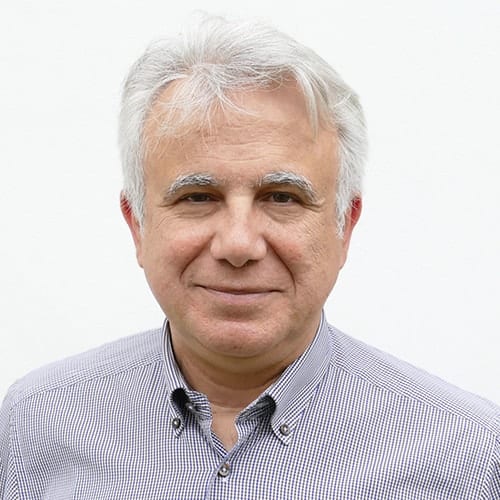NEW IDEAS IN COMPLEXITY SCIENCE
On May 24th, 2018, the First External Faculty Meeting of the Hub started with a public conference.
In short talks complexity scientists from all around globe shared their visions on the question “Complexity: Where do we go from here?”
What are the open, the most pressing, the most promising questions to an understanding of complexity and Big Data?
Find the talks of all conference participants (in order of appearance) on our Youtube channel in the playlist of the conference.
An overview with photographs of the event and links to all available slides can be found here.
ANDREA RAPISARDA
“WE WILL ALWAYS NEED HUMAN IMAGINATION AND CURIOSITY”
The last session was started by Andrea Rapisarda, a professor of theoretical physics at the University of Catania, Italy. Andrea’s talk emphasises the need for human imagination and research driven solely by curiosity in the era of Big Data. He is convinced: Machine learning and deep learning will not be enough to truly gain insights and information from such data.
“Big Data for sure is a good thing,” Andrea begins. “But many are tempted to use Big Data to solve problems and predict the future as a kind of brute force extrapolation. In my view, this is not enough. In my view, this has already been said. We still need models and new ideas to find a meaning or correlations.”
Machine learning and deep learning are important tools in processing the data and removing “noise”, but this, Andrea says, this is not enough either. While such insights can be useful, it does not provide a deep understanding of the mechanisms involved, so predictions cannot be accurate. “Human imagination is vital for developing new ideas and new scenarios and find the most relevant elements.” While bots evolve all the time, Andrea believes they will never have imagination, or curiosity.
Andrea points out that many great thinkers, including Albert Einstein, have praised the value of human imagination and human curiosity. A recent book, The Usefulness of Useless Knowledge, contains an essay of the title by Abraham Flexner, the founding director of the Institute for Advanced Study in Princeton, and a companion essay by Robbert Dijkgraaf, the Institute’s current director. “It makes the point that we should pursue curiosity-driven research, even without an obvious application,” Andrea says.
What’s more, he concludes, we should make sure the results are disseminated widely, including to the general public, to influence the direction we take in future.
CLICK FOR ANDREA’S SLIDES.
See the video in full lenght here:

